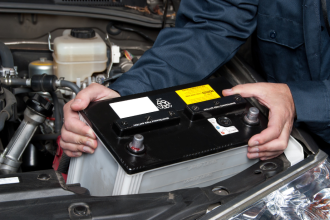So, you’ve decided to get a home EV charger. Congratulations!
This would prove to be an exciting and challenging time for you as there would be so many decisions to make. What kind of charging point should you get? Should your charger be wall-mounted or not? Where would you place it to get maximum utility? And on and on, it’ll go until the electricians come and install your charger.
In all of this excitement and decision-making, you should know a couple of things before the installation day. We’ve compiled a list to help you keep track.
- The Size of Your Main Cutout Fuse
The main cutout fuse is a little box located in the electricity metre box of your home. It is small in size and easily overlooked by people. In fact, many homeowners don’t know what the main cutout fuse is and can’t identify it if they see it. You can find the home’s meter box under the stairs inside your home or outside. Although small, the main cutout fuse is an essential part of the metre box. All incoming electricity passes through the metre box. If it were ripped away or damaged, it would stop electricity from getting into the house.
Electricians installing your home EV charger would most likely ask you about the rating of this little fuse box to understand how much load it pulls. The rating on the fuse is in amps, and its capacity would determine what type of charger point it can carry.
For example, a 7kW home EV charging points puts a load of 32amp whenever it’s charging. If the total amount of currency your main cutout fuse can carry is as low as 55amp, charging your electric vehicle would draw more than half of that. The danger in this situation is that if your other home electrical activities add up to more than 55amp, the fuse would blow and cut off electricity to the entire house.
What’s the solution? You can upgrade your fuse to 100amp if the total fuse capacity is low.
2. What is Your MPAN Number?
When your installation is complete, the electricians must register it with the distribution network cooperator. They’d need your meter point administration number (MPAN) to do that. This number is a 21-digit unique identifier of your metre that shows up on your electric bills.
How do you find your MPAN number? I’m glad you asked. Your MPAN number is on the electricity bill in a triangular box marked supply number, and it begins with an S.
3. Do You Have Earthing and Bonding
Before an electrician installs your new charger, they have to be sure that the connections in your home are safe. This means checking that the main earthing and bonding are installed on the water and gas pipes. You can find this easily by checking in your gas meter. You’ll be looking for a 10mm cable with an earthing clamp bonded to the main gas pipe. It is usually in the box or just outside the box.
Why do you need to know this?
For starters, not having a central earthing and bonding could add high costs to your installation, as your electrician would tell you. Secondly, it’s a safety precaution to ensure that adding electricity-consuming equipment like your EV charger won’t adversely affect your home’s electricity, gas, and water setup.
4. Do you Share Power With The House Next Door?
Some homes share power with the house next door, which is called a looped service. Unless you’re an electrician or you pay attention to the electricity particulars of your home, you likely won’t know what a looped service is or how to know if you have one.
Looped service or not? Why does it even matter when you’re getting a home EV charger from a specific EV charging company?
The looped service means that because you and the next door share the same incoming electricity, your home is sharing it, so you might be getting less electricity than a home without a looped service. As mentioned above, electric vehicle chargers draw a lot of electricity, so it’s important to know if your home can draw enough power to sustain your charger and other electric activities.
How do you know if you’re on a looped service or not?
From your metre box! If two wires carry incoming electricity, one is for the home next door. Sometimes, this method fails and homes with one wire still share with the next-door house with two wires. The foolproof way to find out is by calling your UK power distributor to confirm from their records.
5. Does Your Consumer Unit Have a Spare Way?
The user unit, commonly known as the fuse box, is the point of entry for all electricity the house uses before being distributed. When installing an EV charging point at home, your electrician would need to know if your consumer unit has a spare way. It is less challenging to install an EV charger if your consumer unit has a spare way.
Suppose your consumer unit doesn’t have a spare way, the electrician might need to install a smaller consumer unit next to the old one to accommodate your EV charger.
Also important to note is that older versions of the consumer unit that come in plastic and have plugins may need to be upgraded or changed before the electrician can install your EV charging point.
Conclusion
Installing an EV home charger is a challenging exercise. Beyond the exciting decisions, there are technical facts to know about your home before installing an EV home charger. This article outlines five of these. Knowing this information can make your installation process easier by saving you additional costs and time.















